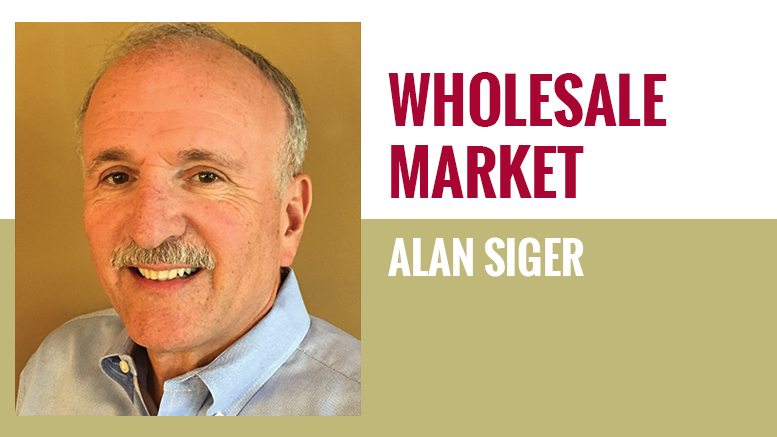A Guide to Wholesale Produce-Staff Training
September 1, 2016 | 4 min to read
In the produce industry, effective employee on-boarding is crucial, emphasizing a clear understanding of trading terminology and procedures. Mentorship from experienced employees can enhance this process, as many new hires may lack familiarity with the Perishable Agricultural Commodities Act. Additionally, the article humorously explains the hidden meanings behind common phrases used in the industry, warning about the potential pitfalls of miscommunication. Ultimately, building trust through actions fosters strong relationships essential for success.

Despite professional experience or education, every industry has a learning curve. Employee on-boarding in produce should specifically entail a “rules of the road.” A full understanding of trading terminology and procedures is vital to one’s success as a buyer or seller. Mistakes due to misunderstanding trade terms can be costly, and could very well damage a relationship with a trading partner.
Beyond the basics of an IT system overview or a facility tour, orientation for new hires should offer more value. To help a new-hire get the lay of the land, consider partnering him or her with an experienced and exemplary employee as a mentor.
In addition to basic on-boarding and establishing an opportunity for a mentorship, find out if new employees have a basic understanding of the Perishable Agricultural Commodities Act (PACA). Just because someone has work experience does not mean they have an idea about how the produce industry operates.
The USDA offers an excellent comprehensive training course available online where one can learn basic trading terms or brush up on their knowledge of PACA. You might want to consider having all of your traders review the site to ensure they are updated on any recent changes.
Shortly after I started with my company in 1973, I recall a buyer asking me on a conference call about New Jersey “grass” and when it would be available. Having been raised in the 1950s and 60s, my first thought was not asparagus; fortunately, my mentor was also on the line and he caught on before I embarrassed myself. In this case, my mentor helped me to understand informal industry jargon. It’s important we remember that what is second nature to those of us with ample experience may not be so obvious to someone that’s new.
Employee on-boarding in produce should specifically entail a “rules of the road.” A full understanding of trading terminology and procedures is vital to one’s success as a buyer or seller.
Now that I’ve given you information on how to educate new hires on formal terminology and customs, I think it’s appropriate for me to give you a few tips that you’ll never find in a USDA publication. With my tongue firmly planted in cheek, I offer you the following guide to understanding what produce people mean when they tell you something.
The Meaning of ‘Fresh.’ A seller tells you that an item is “fresh.” In this situation, fresh is defined as, “product that may have been here a while, but the seller is willing to ship it and hopes your quality control receiver won’t reject it.”
When ‘Soon’ isn’t Soon Enough. An over-the-road trucker (or truck broker) tells you the load will arrive “soon,” “shortly,” or “in a couple of hours.” In this case, the truck broker or dispatcher has no idea where the truck is, and they hope it gets in soon so you will quit calling them.
How Late is Late? A shipment is two hours late, and you call your wholesaler to find out where your order is. The wholesaler tells you, “The truck just pulled out and is on its way.” This means the wholesaler’s operation is running behind, your order has not yet been picked, and they will get to your order when they are able to. In this case, it’s probably a good idea to call your customers and let them know your trucks will be late too.
You’re Really Not as Special as They Say! A shipper tells you, “The market is up $3, but we are only raising your price $2.” This is the old, “You’re special” routine. If it makes you feel better, then great; but you’re probably still priced $1 over the market. Seriously, don’t fall asleep on pricing on a commodity. Always have more than one supplier on high-volume items.
Making it Up. You’ve been hurt by a market decline or a similar situation out of your control, and you ask your supplier for a price adjustment on the order. The supplier tells you, “I can’t do anything on this order, but I’ll make it up to you on the next one.” Translation: “No adjustment for you on this invoice, give me another order, so I can leave you hanging on that one too.” I was in this business for more than 40 years, and there is no such thing as making it up to you on the next order.
Actions Speak Louder Than Words. Lastly, when someone says, “Trust me,” that means, “Look out.” A person who you trust will not ask you to trust them; they already know that you do. Trust between two people is built over time; it is not by request, but by actions towards others. I am very appreciative of the many solid relationships I built over the past 43 years. Many of my strongest relationships led to lifetime friendships, and the key to these successful partnerships is mutual trust.
Alan Siger is chairman of Siger Group LLC, offering consulting services in business strategy, logistics, and operations to the produce industry. Prior to selling Consumers Produce in 2014, Siger spent more than four decades growing Consumers into a major regional distributor. Active in issues affecting the produce industry throughout his career, Siger is a former president of the United Fresh Produce Association.
31 of 42 article in Produce Business September 2016

